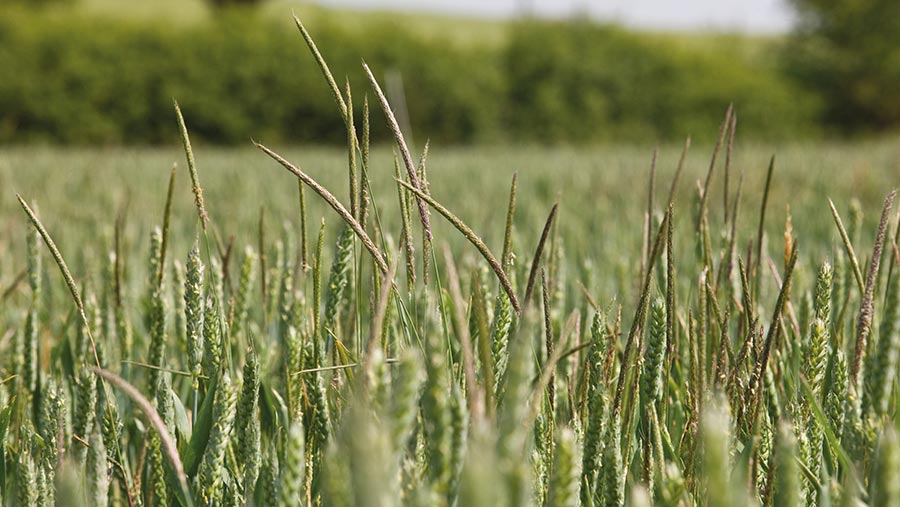Growers invited to sample grassweeds in farmer-led project
 © Tim Scrivener
© Tim Scrivener Farmers are invited to monitor and sample grassweeds as part of a project investigating harvest weed seed control.
This will be the UK’s first ever farmer-led survey of grassweeds left standing at harvest.
See also: Farmers reveal results of combine weed seed destroyer trial
The call is to recruit seed scouts – growers who sample grassweeds in crops as harvest approaches and send this to crop research consultant Niab for analysis.
Each farmer taking part in the study will receive tailored information on the level of efficacy of harvest weed seed control, which opens up a new chemical-free form of grassweed control and helps reduce reliance on glyphosate.
Weed seed control
The project forms part of the second year of trials, which saw a group of farmers test a Redekop seed control unit (SCU) that destroys weed seeds by milling chaff to a fine dust.
Will Smith, weed management research agronomist at Niab, explained that harvest weed seed control would only work is if the seeds were available to the machinery at harvest.
“We currently know little about how much viable seed goes into the combine – there is very limited work on this in the UK and Europe.”
Those interested can register for a webinar, hosted by the British On-Farm Innovation Network, which will take place on Thursday 18 May at 6pm.
Further trials
The webinar will also discuss plans for further on-farm trials of the SCU that will take place on a number of UK farms this harvest, building on last year’s results.
Adam Driver, of Driver Farms, Suffolk, is leading the project and had an SCU fitted to his Claas Lexion 8800 in time for the last harvest.
“We have been worried about the build-up of blackgrass in the strips behind the combine, and from the first year’s results, it looks as if the SCU is generally doing what we want it to.
“One of the main reasons we got the SCU is to stop brome and ryegrass before they become a problem like blackgrass.
“The other noticeable difference has been far fewer volunteers in the following crop. This is important for malting barley following wheat, and for milling wheat after spring barley.”
Mr Driver also sampled his grassweeds to test the seed-sampling protocol developed by Niab.
“It’s fairly straightforward and something any farmer can do. What amazed us was just how much viable blackgrass seed was still standing at harvest.”
For more information and to sign up for the webinar, visit bofin.org.uk.

